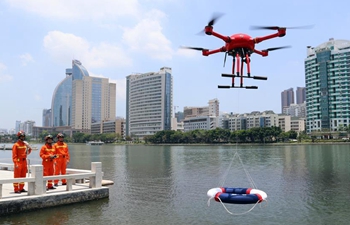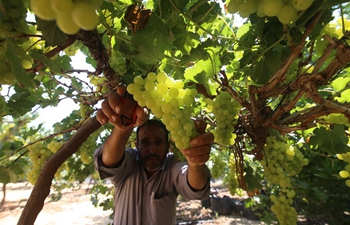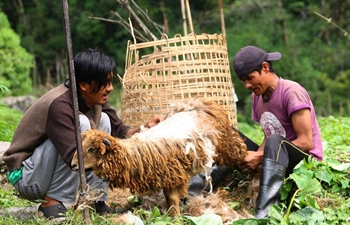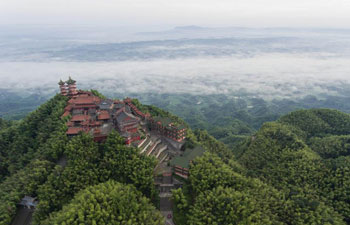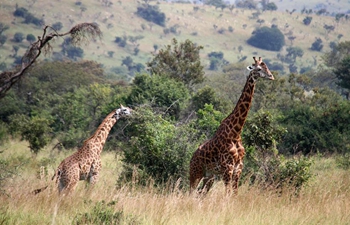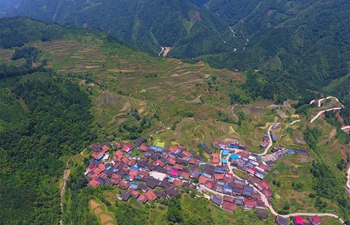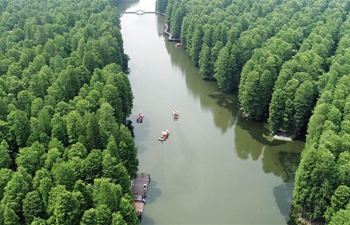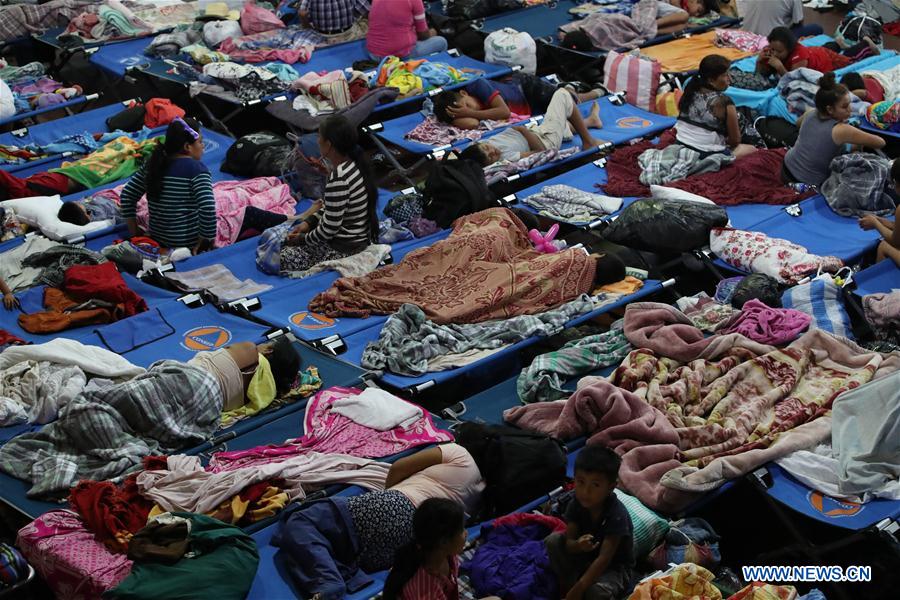
People stay in a shelter after the eruption of the Fuego volcano, in Escuintla, Guatemala, on June 6, 2018. The death toll from the eruption of the Fuego volcano in Guatemala has risen to 99 as more bodies were found Wednesday, according to Guatemala's National Forensic Sciences Institute (INACIF). (Xinhua/Prensa Libre)
GUATEMALA CITY, June 6 (Xinhua) -- The death toll from the eruption of the Fuego volcano in Guatemala has risen to 99 as more bodies were found Wednesday, according to Guatemala's National Forensic Sciences Institute (INACIF).
The remains of 99 people have been sent to morgues, while just 28 have been identified so far, the INACIF said in a report.
"We already have data with names and locations where there are missing persons and that number is 192," said Sergio Cabanas, head of Guatemala's disaster management agency.
It has been over 72 hours after Sunday's volcanic explosion, and firefighters assumed it is impossible to find anyone alive amid the still-steaming terrain.
Emergency workers had to temporarily suspend their search late Tuesday after a new eruption triggered a landslide. And explosions boomed from the 3,763-meter volcano Wednesday, unleashing a new flow of dangerous volcanic material.
Experts also warned that heavy rains in the area could provoke avalanches due to the large flows of volcanic mud, which had been hardened by the rainfall, causing a problem for the rescuers to get people out or figure out how many are still buried there.
Clouds of smoke poured into the air as rescuers poked metal rods into the ground. It has been estimated that the temperature below the surface reached as high as 400-700 degrees Celsius, which made rescue work more difficult.
Hundreds of rescue workers, including firefighters, police and the military, were battling adverse conditions to search for remains in the aftermath of the landslide.
More than 12,000 people have been evacuated from their homes, with over 3,000 of whom housed in temporary shelters, the disaster management agency said.
Local volunteers on Wednesday distributed food to rescue workers on the slopes. Food, water, toilet paper, diapers and other necessities have also been distributed to residents.
Fuego volcano exploded around noon on Sunday, affecting more than 1.7 million people. A state of disaster has been declared for the southern departments of Escuintla, Sacatepequez and Chimaltenango, the three most affected in this disaster.
"The conditions are critical in the areas near Fuego volcano," said Eddy Sanchez, director of the National Institute of Seismology, Volcanology, Meteorology and Hydrology, adding that Sunday's eruption is the most violent explosion of Fuego volcano since 1974.
According to volcanologists, eruption records of Fuego Volcano, one of the country's most active volcanoes, date back to 1542. At its fiercest, the volcano could spray ash all the way to Guatemala's southern neighbors of El Salvador and Honduras.




